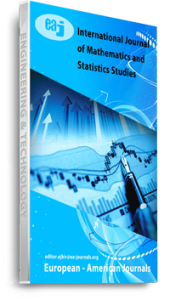The issue of gender biases among mathematics teachers and the self-efficacy beliefs of students is an intriguing subject. This study sought to explore how teachers’ gender biases and students’ self-efficacy beliefs impact mathematics instruction in the Adenta Municipality of the Greater Accra Region of Ghana. A sequential explanatory mixed method design was utilized in collecting data from 100 Basic school mathematics teachers and four hundred (400) Junior High School students through a closed-ended questionnaire and semi-structured interview guide. The study discovered that gender-related stereotypes and biases among teachers perpetuated gender-based misconceptions, affecting the self-efficacy of female students who were perceived to be weaker in mathematics. The study recommended comprehensive teacher training and awareness programs to help address gender-related stereotypes and biases in mathematics instruction.
Keywords: Gender biases, Mathematics instruction, Students’ self-efficacy beliefs

